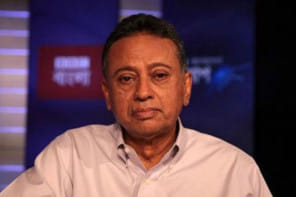Problems of tourism in Maldives
High-end tourism in the Maldives, the largest foreign exchange earner, is now in a vulnerable state. The stunning bungalows beside unpolluted beaches, sparkling aquamarine water, multi-coloured tropical fish in the reefs, water sports and glorious sunsets make Maldives one of the most beguiling tourist destinations in the world. This is now under threat. Thousands of protesters and members of the opposition Adhaalath party gathered on December 23, 2011, to "Defend Islam." The five demands to the government were (i) to stop flights to Maldives from Israel, (ii) to close spas and massage parlours in tourist resorts, (iii) ban the sale of alcohol in sections of inhabited islands classified as uninhabited, like the venue of the last Saarc Summit in Addu City and Favenmulah, (iv) condemn the Chief of UN Human Rights Navi Pillay for her comments against flogging, and (v) remove allegedly "idolatrous" Saarc monuments in Addu city.
The Parliament's National Security Committee passed a resolution advising against licensing of Israel's airline to operate direct flights to Maldives. The government pointed out that the monuments built for Saarc in Addu fell under the jurisdiction of the Addu City Council and only Parliament could issue a statement against Ms. Pillay as she had directed her comments to the Majlis. Her visit was organised by the UN office.
Although Maldives is a 100% Islamic state, historically it was a trading junction for several ancient maritime civilisations including Egyptians, Romans, Arabs and Indus Valley traders. It was a Buddhist state that converted to Islam around 1153 AD. But, it remained an open state with the prevailing customs of the country as its distinctive features. Home to some 330,000 Muslims, Maldives has a reputation of a paradise holiday destination, but this image has come under question due to minority religious fundamentalists.
By 1993, the country developed economically through the now massive tourist industry and stable trade in fishing. Tourism is strictly regulated and, except for Addu atoll, resorts have been established only on uninhabited islands. The World Tourism Organization cited Maldives as a model for sustainable tourism development.
But, after the recent protests, the tourism ministry instructed resort hotels on the nation's pristine coral islands to close all spas and health centres. Immediately, over 100 spas were shut down. The opposition Adaalath party and Islamists claimed that resorts were fronts for prostitution. This is totally untrue and has been refuted by the Maldives Association of Tourism Industry (MATI). Tourism in the Maldives is a popular destination for wealthy honeymooners where bungalows can cost up to $12,000 per day. This industry is essential for the national economy. Maldives specialises in winter sun for Europeans making its high season from December to April when the country enjoys dry weather. But numerous reservations have been cancelled after the December 2011 protests, causing "irrevocable damage."
The government has lifted the controversial nationwide ban on spas with immediate effect. The announcement was made by President Nasheed during a press conference on January 4 at Kurumba Island Resort, the country's first resort opened in 1972. Nasheed rejected religious extremism and urged the people to support a "tolerant" form of Islam practiced in the country for centuries. He added that he was confident that the institutions of state would recognise the importance of upholding national development and not damage this lucrative industry. Information revealed that as soon as the ban was imposed on spas, the opposition parties, headed or influenced by resort owners, swiftly changed their stance and stated that they did not want to damage the industry.
The week-long ban made headlines in both national and international media and reported in BBC. "The government does not want the economy to suffer any damage during the time the Supreme Court takes to come to a decision," stated President Nasheed. The government's action woke the nation from its slumber and sparked a healthy debate about the future direction of the country.
Maldives is a middle income country with GDP per capita (2010 est.) of $4,770 and inflation is 4.7%. In recent years. The country greatly benefitted from tourism, which brings around $600 million annually. Tourism and related services contributed to over 29% of the GDP in 2010. But, its indirect contribution is much higher. As a result, this industry is a catalyst for growth. More than 95 islands are operating as resorts and over 790,000 tourist visited Maldives in 2010. The country experiences capacity utilisation rate of over 80% to 95% in peak winter tourist seasons.
A country of many contradictions, tourism flourished for 40 years selling alcohol, pork and promoting spas. It was possible to do this, although contrary to the principles of Islam, by designating resorts as "uninhabited islands" even though locals from the south of Maldives work there. Ironically, the recent protest is not for religious reasons, but is being used as a tool. Seriously divided along political lines, Islamic nationalism remains a strong political card for the opposition parties that could well influence the outcome of the 2013 presidential election. By allowing this political issue to be addressed early and by reiterating the history of tolerant Islam in the Maldives, Nasheed has challenged the rival camps.
With a backdrop of deteriorating fiscal control due to increased government spending and faltering revenue, the budget deficit was about 16% of the GDP in 2010. Government expenditure was 51% of GDP with revenue of about 34%. This has led to a sharp build up of public debt prompting the World Bank and the IMF to classify Maldives as being at moderate risk of debt distress.
In such a scenario, any significant decrease of revenue from tourism will place the country into further deficits with poor growth and increased vulnerability. It is unfortunate that the greatest foreign exchange earner should be a subject of political contention and endangered by power dynamics.

 For all latest news, follow The Daily Star's Google News channel.
For all latest news, follow The Daily Star's Google News channel. 



Comments